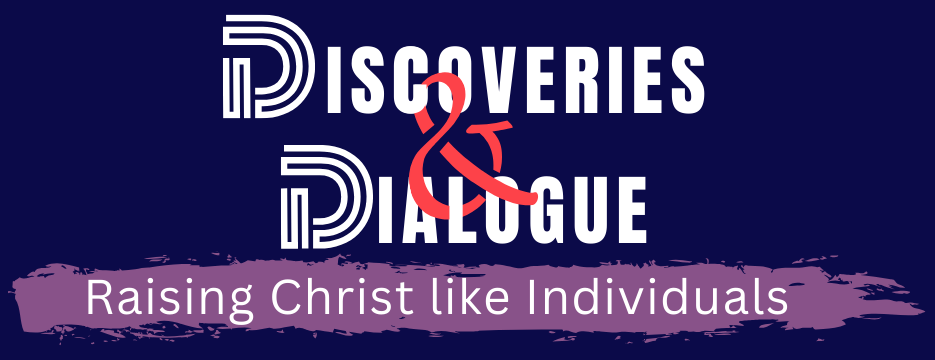
Should Women Be Allowed to Preach in Church?
🚨 Should women preach in church? This question has divided opinions for centuries, sparking intense debates in homes, churches, and even seminaries. But what does the Bible actually teach about this? Let’s look beyond the surface, dive deep into scripture, context, and even cultural history to find clarity on this controversial topic.
Why This Topic Matters Today
This discussion isn’t just about tradition or personal preferences—it’s about understanding God’s Word and its application in today’s world. In a time where equality and inclusion are hot topics, many churches are reevaluating their stance on women in ministry. Others remain firm, citing scripture as their foundation. Wherever you stand, this is a discussion that impacts how we view leadership, service, and God’s design for His people.
Part 1: The Argument Against Women Preaching
Let’s start with the most quoted scripture against women preaching. In 1 Timothy 2:12, Paul writes: “I do not permit a woman to teach or to assume authority over a man; she must be quiet.”
On the surface, this seems straightforward. Many churches interpret this as a universal principle, barring women from preaching or holding leadership positions over men. Some link this to Genesis 2 and 3, pointing out that Adam was created first, and Eve’s deception in the fall (Genesis 3:16) as a basis for male headship in both the home and the church.
Genesis 2:18 says: “It is not good for the man to be alone. I will make a helper suitable for him.” This ‘helper’ role is often cited to emphasize distinct roles for men and women. Furthermore, after the fall, God tells Eve in Genesis 3:16: “Your desire will be for your husband, and he will rule over you.” These verses form the foundation of what’s known as complementarian theology, which asserts that men and women have equal worth but distinct, God-ordained roles.

Should Women Be Allowed to Preach in Church?
- Should women preach in church? This question has divided opinions for centuries, sparking intense debates in homes, churches, and even seminaries.
- But what does the Bible actually teach about this? Let’s look beyond the surface, dive deep into scripture, context, and even cultural history to find clarity on this controversial topic.
Part 2: Women in Leadership Roles in the Bible
But is this the full story? The Bible also celebrates women in leadership. Take Deborah, for example, in Judges 4 and 5. She was both a judge and a prophet, leading Israel during a time of crisis. Judges 4:4–5 says: “Now Deborah, a prophet, the wife of Lappidoth, was leading Israel at that time. She held court under the Palm of Deborah… and the Israelites went up to her to have their disputes decided.” Deborah’s leadership was unquestionable, and she delivered God’s word with authority.
Fast forward to the New Testament. Priscilla, alongside her husband Aquila, taught Apollos, a learned man in scripture, as seen in Acts 18:26: “He began to speak boldly in the synagogue. When Priscilla and Aquila heard him, they invited him to their home and explained to him the way of God more adequately.” Notice how Priscilla is often mentioned first, highlighting her role in teaching and mentoring.
And let’s not forget Phoebe in Romans 16:1–2. Paul writes: “I commend to you our sister Phoebe, a deacon of the church in Cenchreae. I ask you to receive her in the Lord in a way worthy of his people and to give her any help she may need from you, for she has been the benefactor of many people, including me.” Here, Phoebe is identified as a deacon and a benefactor, roles of significant influence.
Part 3: Cultural Context of Paul’s Letters
To fully understand Paul’s instructions in 1 Timothy 2:12, it’s essential to examine the cultural and historical context in which the letter was written. Paul was addressing Timothy, a young leader overseeing the church in Ephesus, a city known for its religious pluralism and rampant idolatry. At the heart of Ephesian culture was the Temple of Artemis (Diana), one of the Seven Wonders of the Ancient World. This temple served not only as a religious center but also as a hub for economic and social life, influencing many aspects of daily living.
In Ephesus, women played prominent roles in the worship of Artemis, often serving as priestesses or engaging in rituals that were heavily tied to mystical practices and fertility cults. These roles likely influenced the societal view of women as spiritual leaders, but often in ways that were unaligned with Christian teachings. The temple’s influence, combined with widespread false teaching, created a spiritually volatile environment.

Subscribe To Our Newsletter
Get notified about new releases, don’t miss out on anything. Stay updated
False Teaching and Lack of Education
At the time, formal education was largely reserved for men. Women, particularly in Greco-Roman society, were less likely to have had access to the type of theological training necessary to teach or lead effectively within the church. This lack of education made them more vulnerable to false doctrines, which Paul frequently warned against in his letters. For example, in 1 Timothy 1:3-4, Paul urged Timothy to instruct certain people not to teach strange doctrines or myths that promoted controversy rather than God’s work. It’s possible that some women, with good intentions but insufficient understanding, were contributing to these problems by sharing inaccurate teachings.
Additionally, Paul’s earlier letters show a clear concern about the dangers of false teaching in the early church. In 2 Timothy 3:6-7, Paul refers to false teachers who “worm their way into homes and gain control over gullible women, who are loaded down with sins and are swayed by all kinds of evil desires, always learning but never able to come to a knowledge of the truth.” This may suggest that the situation in Ephesus involved specific individuals or groups who were particularly susceptible to being misled.
A Specific Directive, Not a Universal Rule?
Given this context, Paul’s directive in 1 Timothy 2:12 could be understood as a temporary solution to address the specific challenges Timothy was facing in Ephesus. It was not necessarily intended as a universal rule for all churches in all cultures and times. Instead, Paul may have been urging Timothy to take immediate action to safeguard the church’s doctrinal integrity while establishing proper leadership.
This interpretation gains further support when viewed alongside other passages where Paul recognizes and commends women in leadership roles. If Paul’s prohibition in 1 Timothy were meant to be universal, how do we reconcile his approval of Priscilla’s role in teaching?
A Balanced Perspective
Paul’s instructions in 1 Timothy must also be read in the broader context of his letters and ministry. While he provides specific guidance for Timothy’s leadership in Ephesus, he also makes sweeping theological statements, like in Galatians 3:28: “There is neither Jew nor Gentile, neither slave nor free, nor is there male and female, for you are all one in Christ Jesus.” This verse emphasizes the spiritual equality of all believers in Christ, regardless of gender, and suggests that roles within the church should align with calling and gifting rather than societal norms.

Should Women Be Allowed to Preach in Church?
- Should women preach in church? This question has divided opinions for centuries, sparking intense debates in homes, churches, and even seminaries.
- But what does the Bible actually teach about this? Let’s look beyond the surface, dive deep into scripture, context, and even cultural history to find clarity on this controversial topic.
Part 4: Analogies and Thought-Provoking Questions
Think about this: In many churches today, women lead dynamic ministries, preach powerful sermons, and transform lives. For example, there are women ministers and pastors whose ministry feeds thousands spiritually and physically. Is it possible that we limit God’s work when we restrict who can preach?
But let’s also consider the other side. If scripture is God-breathed (2 Timothy 3:16), should we prioritize cultural shifts over biblical mandates? These are serious questions we must wrestle with prayerfully.
Conclusion: A Call for Unity and Respectful Dialogue
So, where does this leave us? The Bible presents both restrictions and examples of women in leadership. How we interpret these scriptures depends on our understanding of context, culture, and God’s overarching message of redemption.
What’s clear is this: God calls all His children to serve, to teach, and to share His love. Whether women should preach or not, let’s focus on glorifying God and building His kingdom together.
CLICK HERE TO DOWNLOAD MESSAGE NOTE

Subscribe To Our Newsletter
Get notified about new releases, don’t miss out on anything. Stay updated






